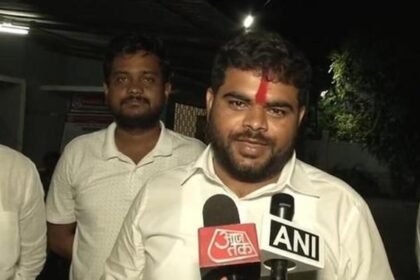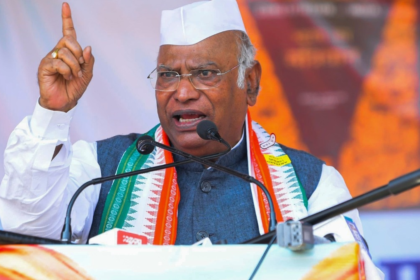The Delhi High Court has uphed the termination of a commanding officer in Indian Army who refused to participate in regimental weekly related parades on the ground that he belonged to christian faith Opportunities and Counseling Sessions at Various Levels by the Superirs.
A Division Bench Comprising Justice Navin Chawla and Justice Shalinder Kaur Said that the termination Order makes it clear that the officer was resolution in his decision of not Attending Religious Parades and Stood Outside The Premies Citing Personal Railious Beliefs, Was Coroids Commanding Officer.
The court said that the termination was based on the officer’s conduct and its impact on Military discipline and unit cohesion, rather than solyly on the annual confidential report (ACR) ratings.
The court said that it Salutes and Acknowledge the dedication of that who guard the country’s borders day and night in adverse conditions. It added that the ethos of India’s armed forces places nation before self; And Certainly, Nation Before Religion.
“Our Armed Forces Comprise of Personnel of all Religions, Castes, Creeds, Regions, and Faiths, Whose Sole Motto is to Safeguard The Country From External Agressions, And, Therefore, AREFORE, AREFORED BY Unform Rathi Than Divided BY Their Religion, Caste, Or region, “The court said.
It added that a higher and heightened responsibility is cast on commanding officers to ensure that trops under their community are provided with facilities, when required, to obsareve their respective Practices.
“The Commanding Officers are to Lead by Example and Not By Division; And by Placing the cohesion of the unit about individual reliability preferences, particularly when commanding trops who are will lead in Combat Sita. And war, “The court said.
The bench dismissed the plea by samuel kamalesan challenging his termination Order and dismissal Him from the Indian Army without Pension and Gratuity. He also sought reinstatement in service.
Kamalesan was commissioned in the Indian Army in March 2017 in the rank of a Lieutenant in the 3rd Cavalry Regiment, which compries of 3 squadrons of sikh, jat, and Rajput Personnel. He was made the troop leader of squadron b which compries of sikh personnel.
It was his case that his regiment maintained only a mandir and a gurudwara for its religious needs and Parades, and not a sarv dharm sthal which would serve persons of all faths. He said that there was no church in the premies.
He said that he accounted his traoops to The Mandir and Gurudwara for the Weekly Religious Parades and Festival. He further contended that he sought exemption from entering the innermost part or sanctorum of the temple when the puja or havan or havan or aarti, etc., was taken place.
On the other hand, the respondent argued that since Joining the regiment, kamalesan failed to attend the regimental parades despite multiple attempts by the commandant and other officers to explain the importance of regimentation to Him.
It was submitted that all possible options were exhausted to make kamalesan undress and conform his conduct to Military Discipline and
Regimental tarteb after the Chief the Chief of Army Staff Examined The Complete Records and was satisfied that his further retention in service has decided in account of His Miscount of His Misconduct.
Dismissing the plea, the court observed that while regiments in the armed forces may historically bear Names Associated with Religion or Region, The Same Does Not Undermine The Secular Ethos of the Institution, or of Personnel who are posted in these regiments.
“There are also war crees which, to an outsider, may sound relieved in nature, however, they serve a purely motivational function, intended to foster solidarity and unity amongst the troops. Armed Forces also give du respect to the Religious beliefs of their personnel, ”it said.
The bench said that kamalesan kept his religion Above a lawful command from
It said that while, to a civilian, it may appear a bit harsh and may even sound far-fetched, howyver, the standard of discipline required for the armed forces is different.
“The motivation that is to be installed in the Troops May Necessory Actions Beyond Ordinary Civilian Standards. Therefore, the Ordinary Person Standard May Not Be Truly Applicable While Judging The Requirements of the Armed Forces. It is for the Armed Forces and the Military Leadership to Determine What Actions they Feel are important for its communicors to take in order to effectively the troops, and white may Act as a demotivating factor for the forces or to the bond and unflinking command that the communicer must yield over the troops. The courts cannot second-gues the same, “The court said.
While the Bench recognized The Importance of Religious Freedom, it said that kamalesan’s position as a communicer requires required Him to Prioritize Unit Cohesion and the Morale of HIS TROOPS. It added that his person refusal to fully participate in weekly Regimental Religious Parades, Despite Extensive Counseling and Opportunities for Compliance, Justified the Action by
The bench concluded that the termination order specifically noted that kamalesan’s undisciplined behavior was against all secular norms of the Indian Army and Had Adversaly Between officers and troops of the regiment, which would be detriental in Combat Situations where rapport with troops is The most important and decisive battle winning factor.
“It also records that the trial of the petitioner by a court for Martial for his Misconduct is Rendered Inexpedent and Impracticable in View of the Sensitive Nature of the Case Owing to the involvement of relatives,” Court said.
It concluded that the decision of termination was taken after careful Consideration of the Specific Circumstans of the case and the potential consultations of different courses of action.
Title: Samuel Kamalesan v. Union of India















